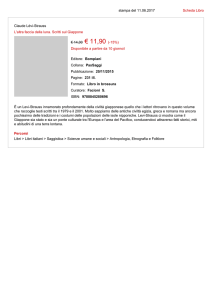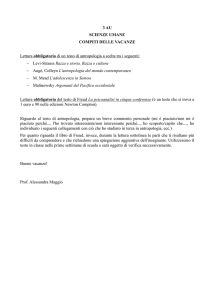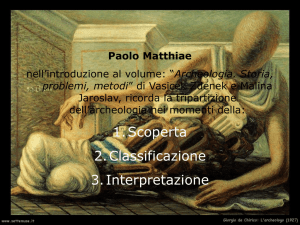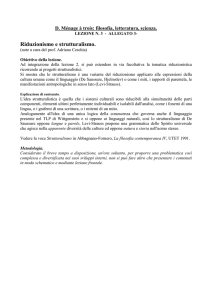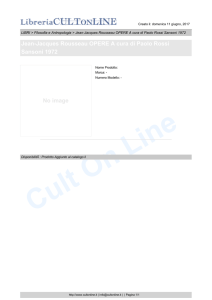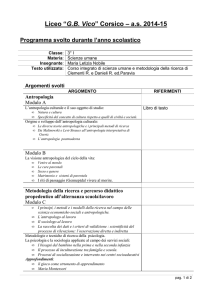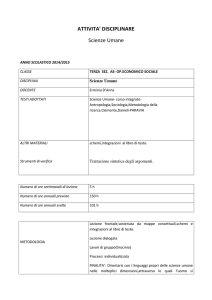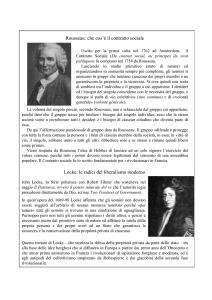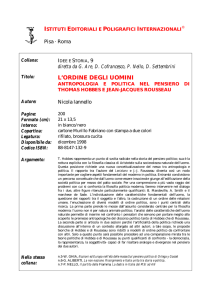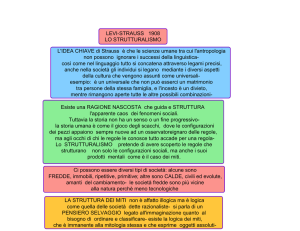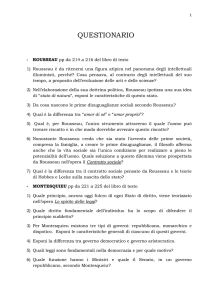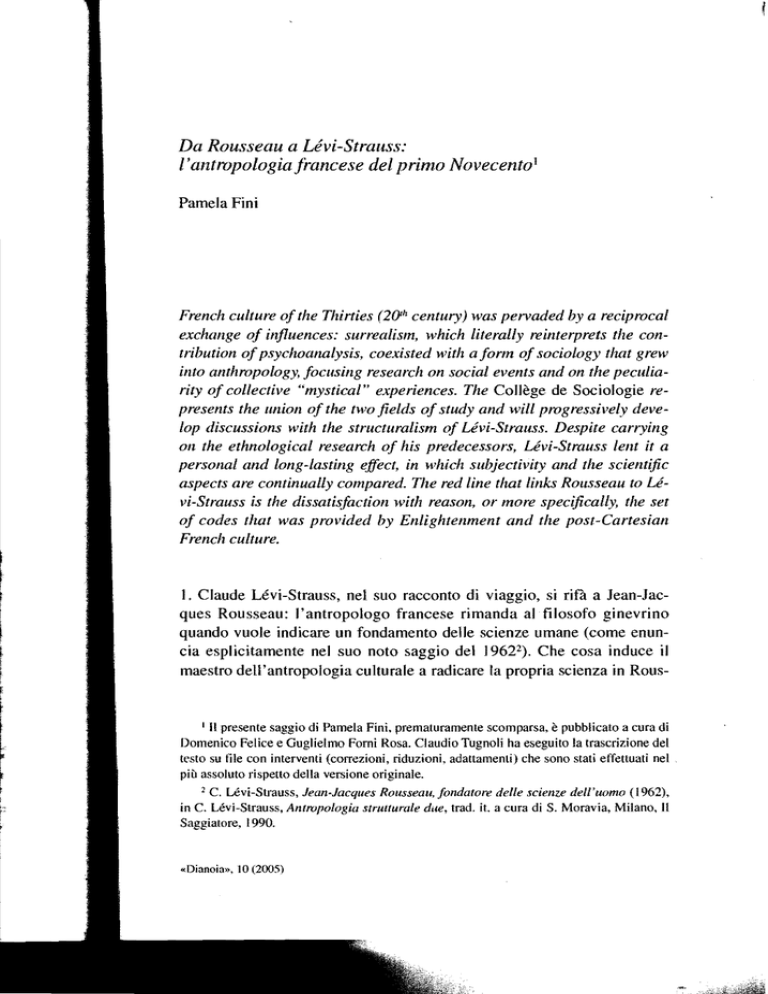
Da Rousseau a Levi-Strauss:
l'antropologiafrancese del primo Novecento l
Pamela Fini
French culture of the Thirties (2(}h century) was pervaded by a reciprocal
exchange of influences: surrealism, which literally reinterprets the con­
tribution of psychoanalysis, coexisted with a form of sociology that grew
into anthropology, focusing research on social events and on the peculia­
rity of collective "mystical" experiences. The College de Sociologie re­
presents the union of the two fields of study and will progressively deve­
lop discussions with the structuralism of Levi-Strauss. Despite carrying
on the ethnological research of his predecessors, Levi-Strauss lent it a
personal and long-lasting effect, in which subjectivity and the scientific
aspects are continually compared. The red line that links Rousseau to Le­
vi-Strauss is the dissatisfaction with reason, or more specifically, the set
of codes that was provided by Enlightenment and the post-Cartesian
French culture.
1. Claude Levi-Strauss, nel suo racconto di viaggio, si rim a Jean-Jac­
ques Rousseau: I'antropologo francese rimanda al filosofo ginevrino
quando vuole indicare un fondamento delle scienze umane (come enun­
cia esplicitamente nel suo nota saggio del 19622). Che cosa induce il
maestro dell'antropologia culturale a radicare la propria scienza in Rous-
I II presente saggio di Pamela Fini, prematuramenle scomparsa, e pubblicato a cura di
Domenico Felice e Guglielmo Forni Rosa. Claudio Tugnoli ha eseguito la trascrizione del
t('sto su file con interventi (correzioni, riduzioni, adattamenti) che sono stati effettuati nel .
piu assoluto rispetto della versione originale.
2 C. Levi-Strauss, Jean-Jacques Rousseau, Jondatore delle scienze dell' uomo (1962),
in C. Levi-Strauss, Antropologia strutturale due, trad. it. a cura di S. Moravia, Milano, II
Saggiatore, 1990.
«Oianoia», 10 (200S)

